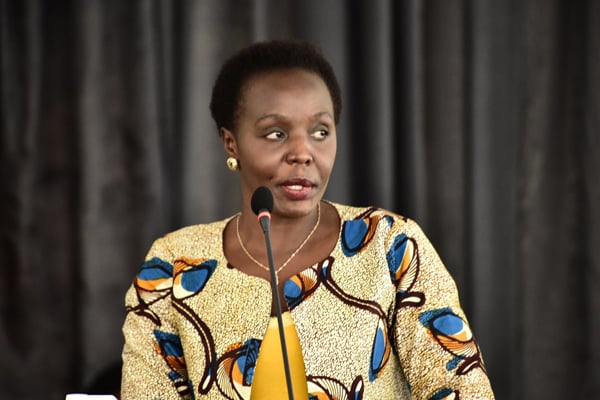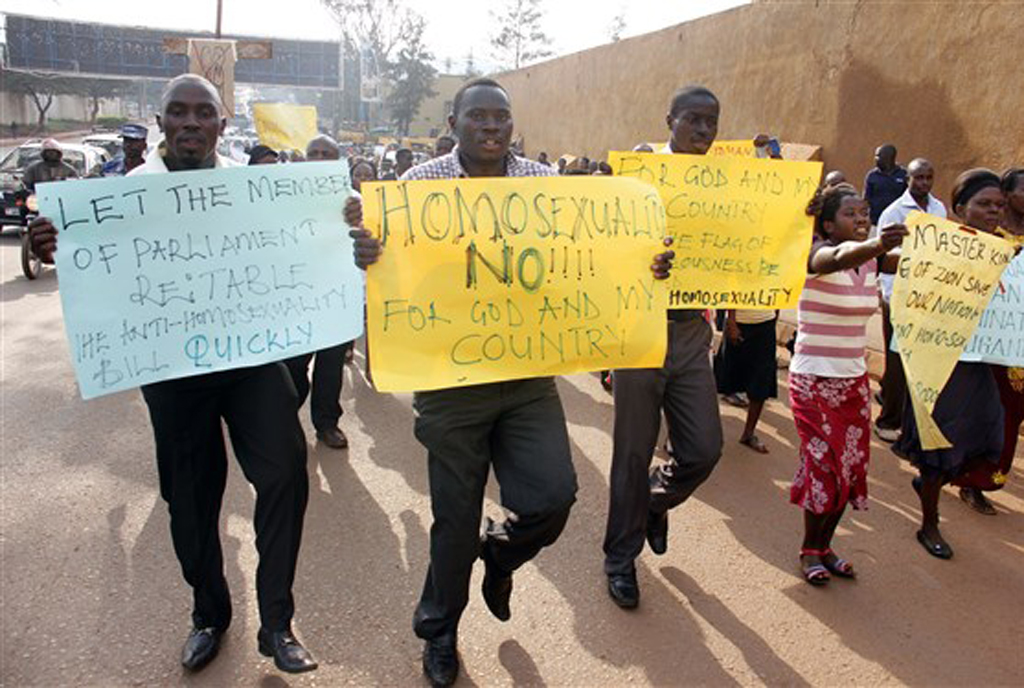Amoding, Sexual Offences Bill mover, speaks on gains, misses

Monica Amoding, Kumi Woman MP
What you need to know:
- Parliament on May 3 enacted the Sexual Offences Bill, 2019, to consolidate legislation on sex-related crimes. The House deleted a proposal for withdrawal of consent by a partner anytime during sexual intercourse and criminalised sex between same gender.
- Daily Monitor’s Esther Oluka caught up with Kumi Woman MP Monica Amoding, who moved the Bill in her capacity as chairperson of the Uganda Women Parliamentary Association that sponsored it.
Are you satisfied with the enacted version of the Sexual Offences Bill, 2019, that you moved?
We are not entirely satisfied because we lost some of the Clauses (1 and 36) we wanted. But we have taken what has been given and for those that we didn’t get, advocacy continues. Maybe in the future, we shall get what we want.
What are those Clauses that were lost that you wanted in the Bill?
Largely consent (Clause 36). If you look at the Bill, consent is central in all sexual matters and that is why we wanted it to be clearly provided for; and that consent can be withdrawn at any time.
It is expected that in a sexual relationship, the persons involved are human beings who can understand, and there are circumstances that warrant that. If your partner says please stop, there is [problem] for this thing (sex) to be abandoned, that is not a big issue.
If you care about your partner and you also care about your own health, there could be reasons why consent can be withdrawn, including for medical reasons. That should be sufficient reason to withdraw and be granted by the partner. And, it does not only apply to women. It applies across the board.
Secondly, it is not the first and last sexual encounter you are having. It is not a matter of life and death. You will always have another opportunity. You are not going to die because consent has been withdrawn at that instance.
But I also feel that (Clause 36) is for protecting people because I could have agreed to certain terms and then we go to the act and then certain terms are changed, for example, the type of sexual intercourse involved.
A case in point is that someone may not be interested in anal penetration, among other strange kinds of things. So, someone should be able to be free to say that it is not the kind of sex they want. Can’t consent be withdrawn?
Then, the definition of the term sexual act (Clause 1) is another area I feel we lost out because we wanted it expanded to provide for other forms of revolutionised sexual issues in the world now. Someone can commit a sexual offence, and it is not just usually within the natural known sexual organs.
He/she can use an object or any other thing, but that was restrained in view of Clause 11. But back to the Bill, the men are largely opposing it.
Why do you think men are opposed to it? It’s largely because of socialisation, the power that men feel they have and their control over sexual relations. We lost this one and yet it was very central.
What other reactions have you received since enactment of the Bill?
I hear that certain communities of the LGBT (Lesbian, Gay, Bisexual, and, Transgender) complaining that the Bill has come in to prohibit homosexuality. That is another debate that I don’t want to comment on.
Then there is also prostitution, an issue which is controversial now. The sex workers are saying that prostitution has been prohibited, but in the initial Bill, prostitution was not there. It has been reinstated [in the Bill and criminalised].
Also, in the initial Bill, issues of homosexuality were not largely expounded on, but in the wisdom of Parliament, members decided to expand Clause 11 [to criminalise sex between same gender and sex through the anus].
In the initial Bill, we adopted unnatural offences the way it is provided for in the Penal Code Act because it is also a sexual offence and because we were trying to provide for a consolidated Act on sexual offences.
So, we said, let us lift it, the way it is, and put it here [in the consolidated law] the way it is. But in the wisdom of the [Legal and Parliamentary Affairs] Committee and the House, that (provision) was expanded.
Then, also on prostitution, we had not provided for it in this Bill. We wanted to leave it out. But in the wisdom of the House and the Committee, you have no control over a Private Members’ Bill.
Once it becomes the property of the House, it is beyond you. So, prohibition of prostitution was reinstated in the last amendment. And so, these are the areas you are hearing people making a lot of noise about in the public.
For me, I have done my part. Advocacy is not static. Laws change. Values change. Society changes. So, for those who feel that their rights have been left out, or tampered with, [they] can also continue with advocacy.
Over all, do you think it is a great Bill?
It is great … The areas that have been enacted are very progressive in advancing the rights of women. And, in view of our society, what we were able to get is something that will enable us enhance protection, enhance prevention of sexual violence and enhance punishment as well.
But it will also reduce cases of sexual violence in the country. According to reports from Police, sexual violence is [among] the highest crimes [committed in Uganda] and that’s the reason why we came up with these amendments.
As you can see, we have provided for a sexual offenders’ register. If someone is convicted, that can be preventive. People will fear to commit sexual offences. We are also saying that false allegations are prohibited.



